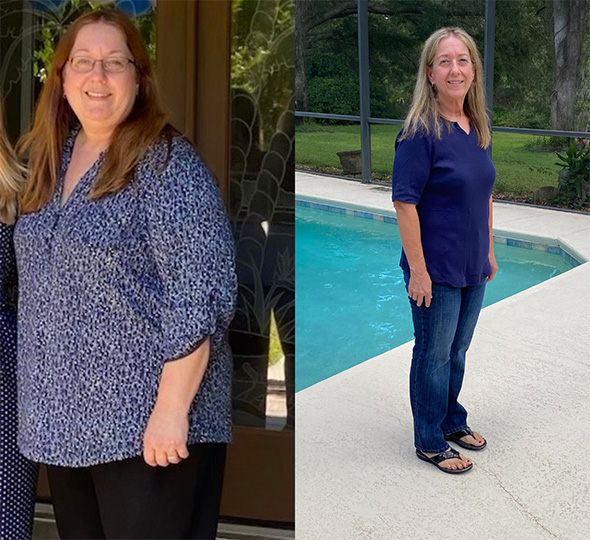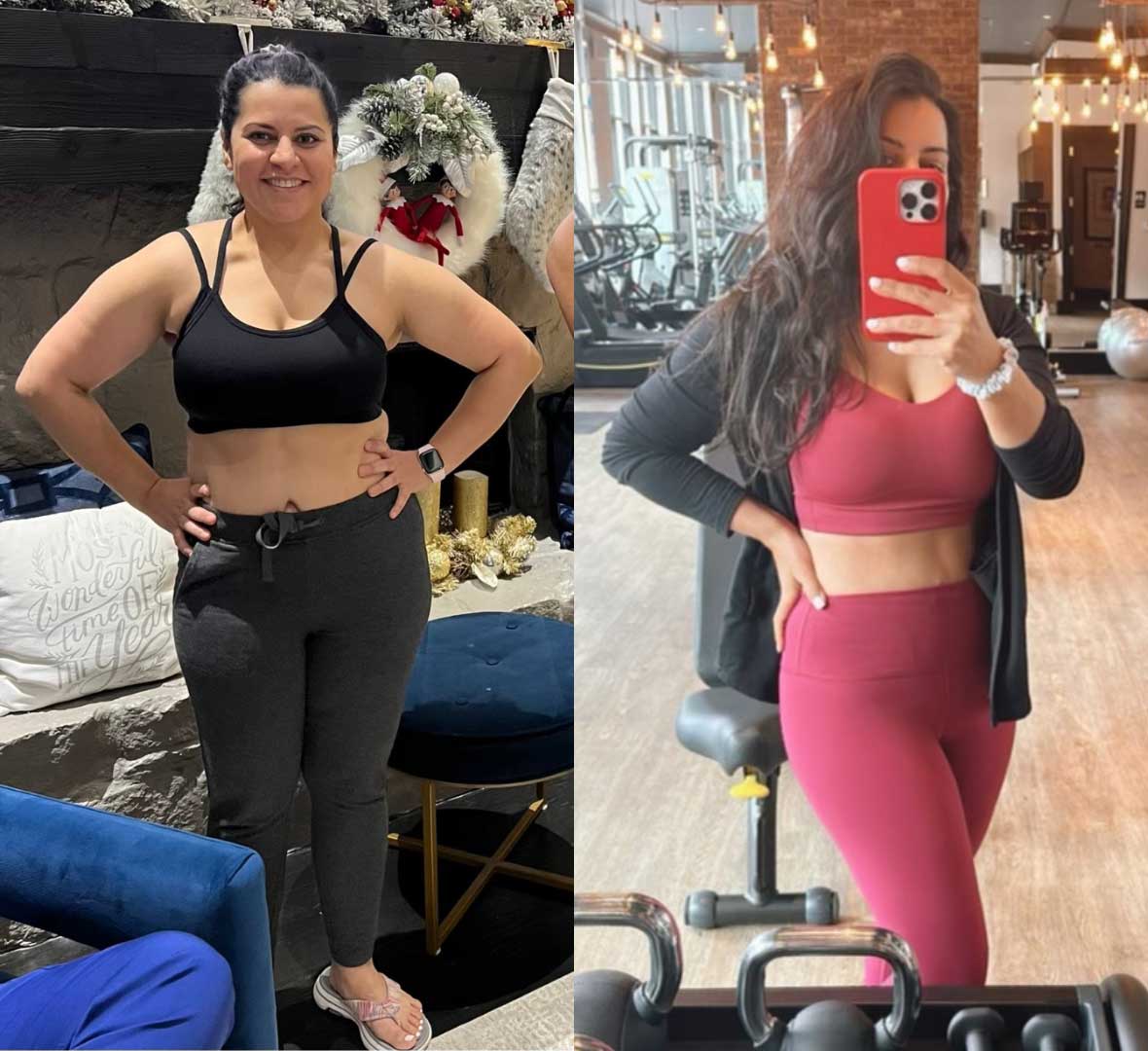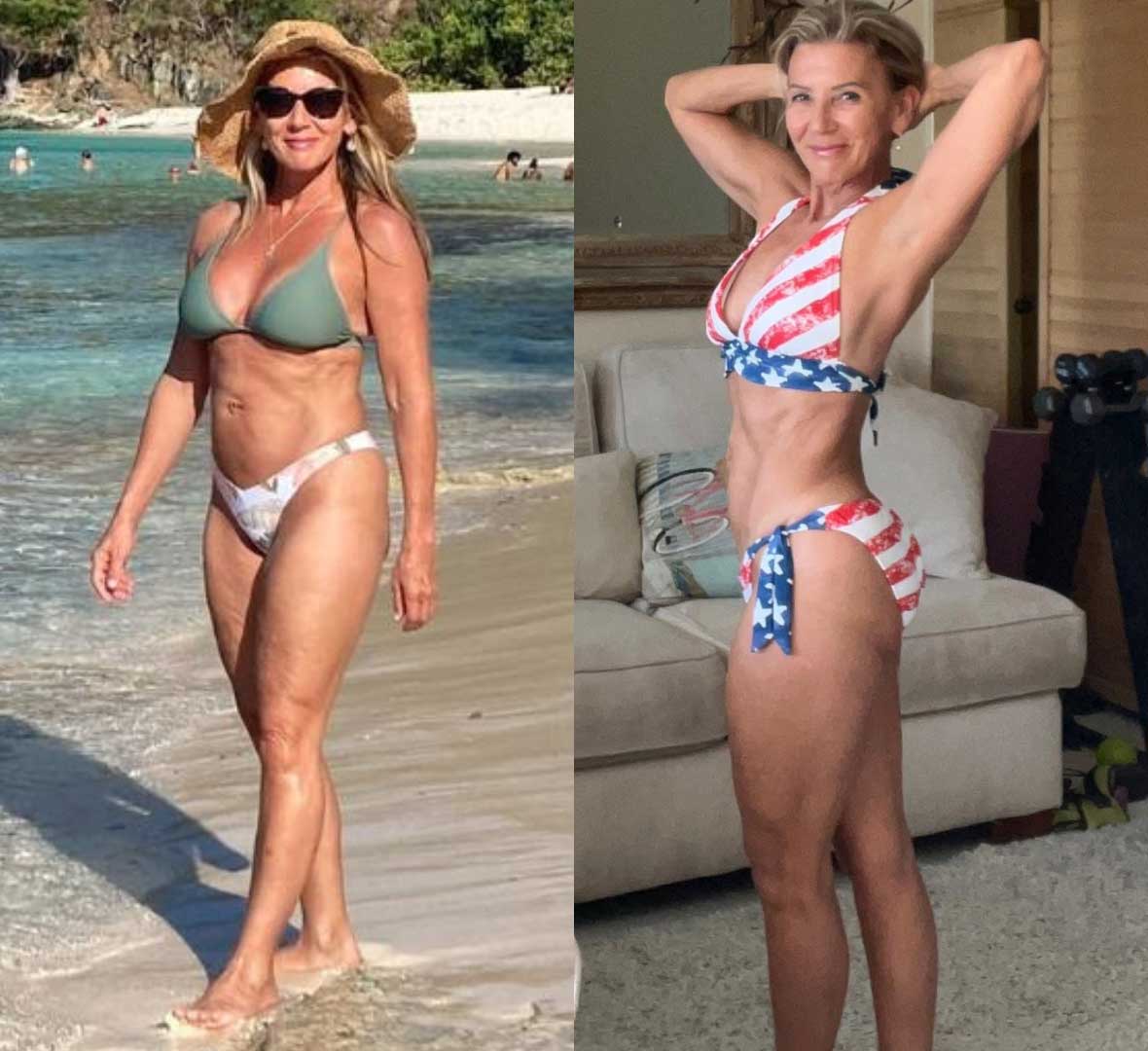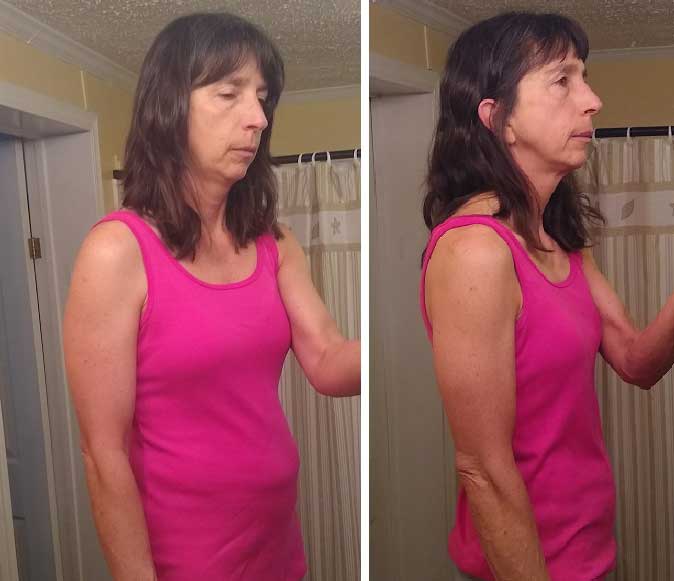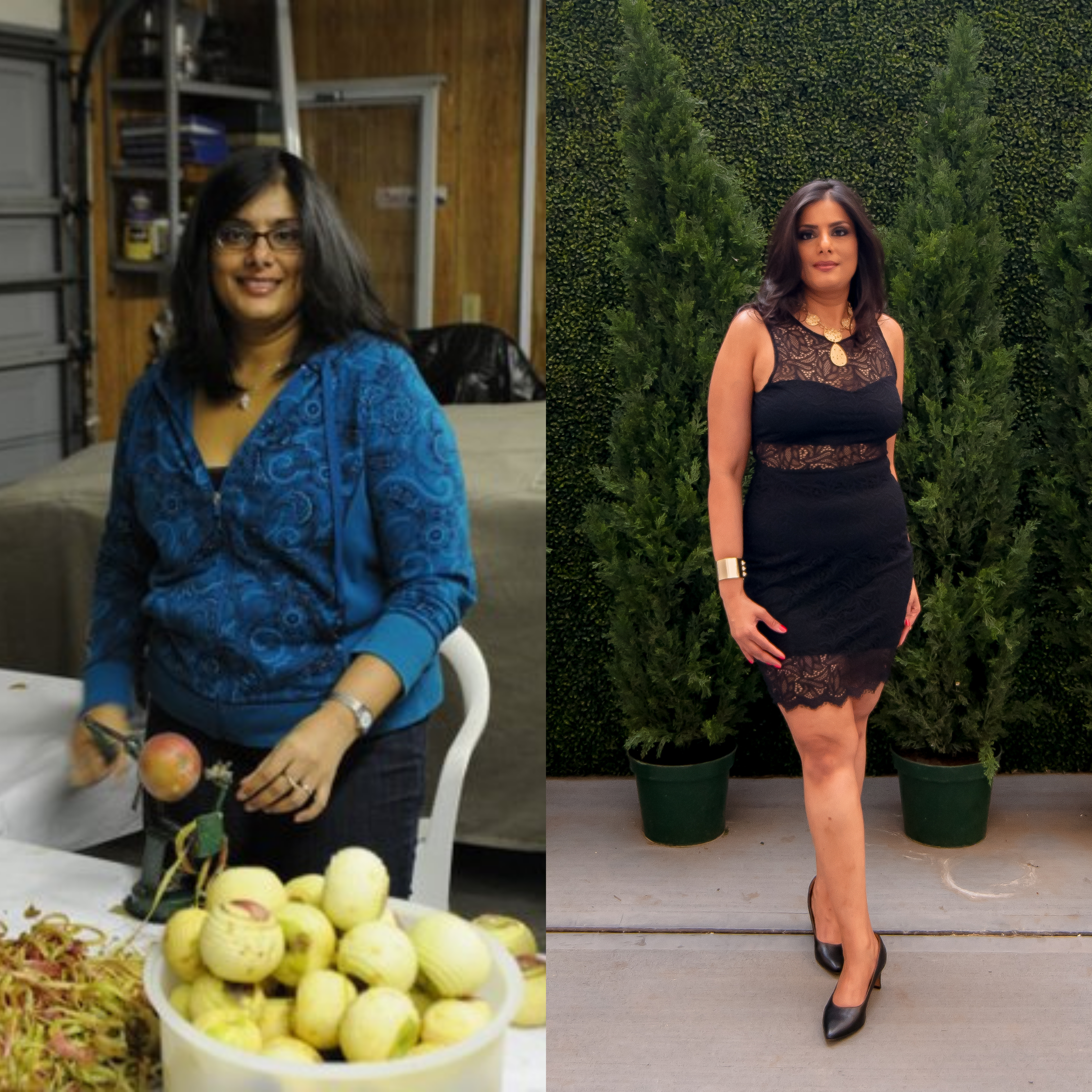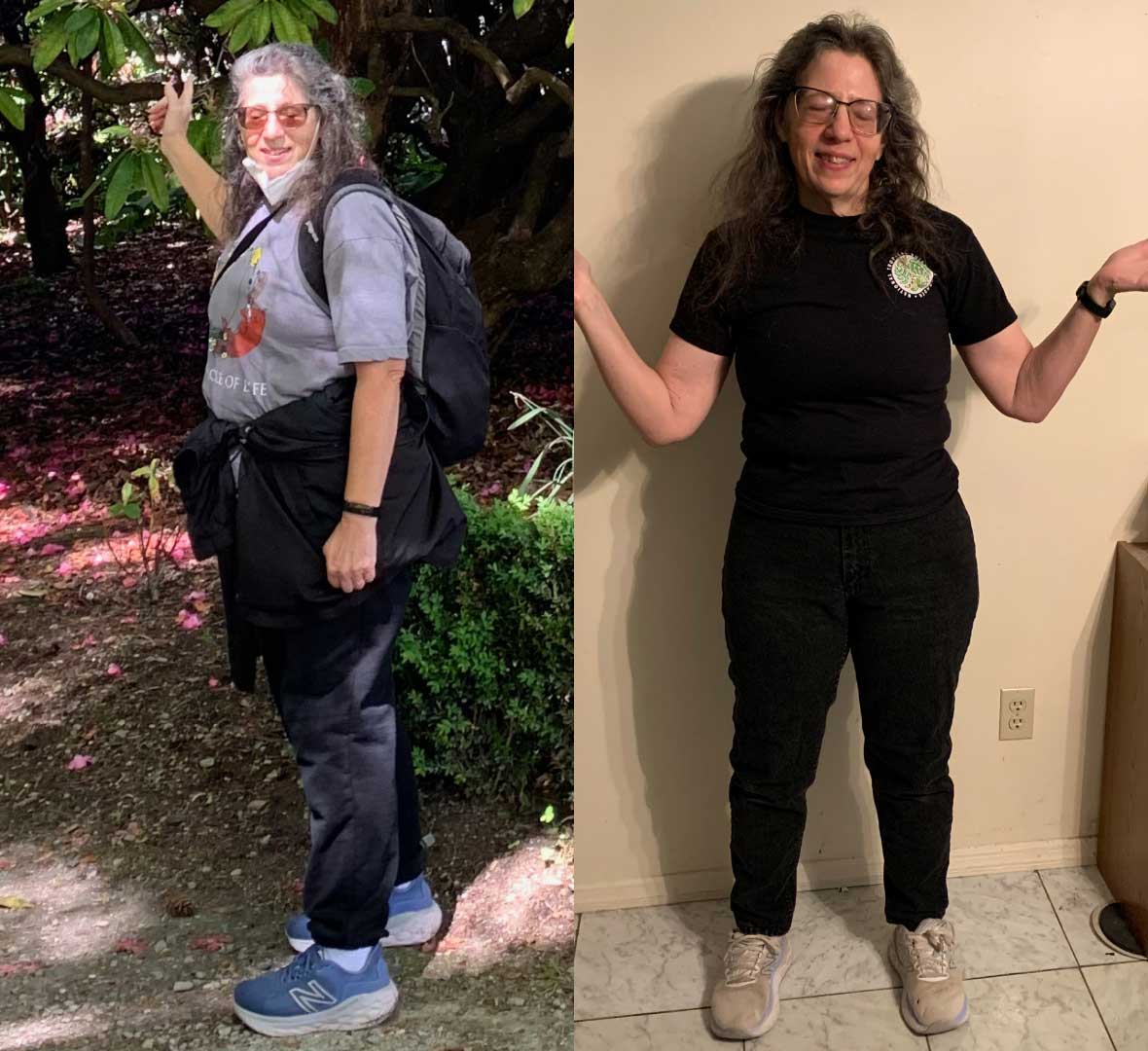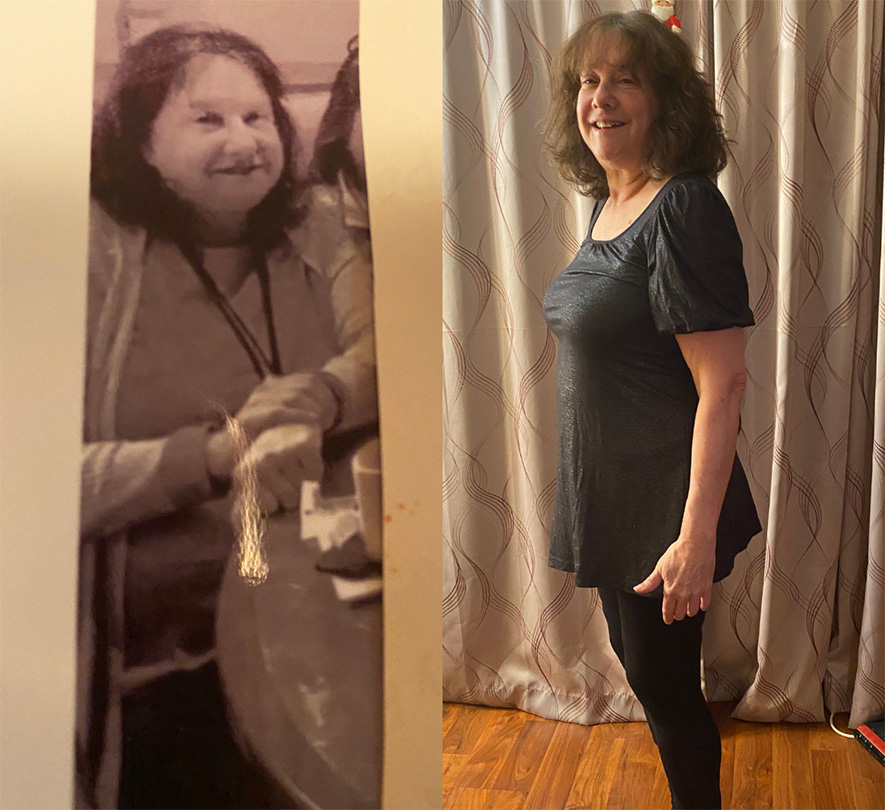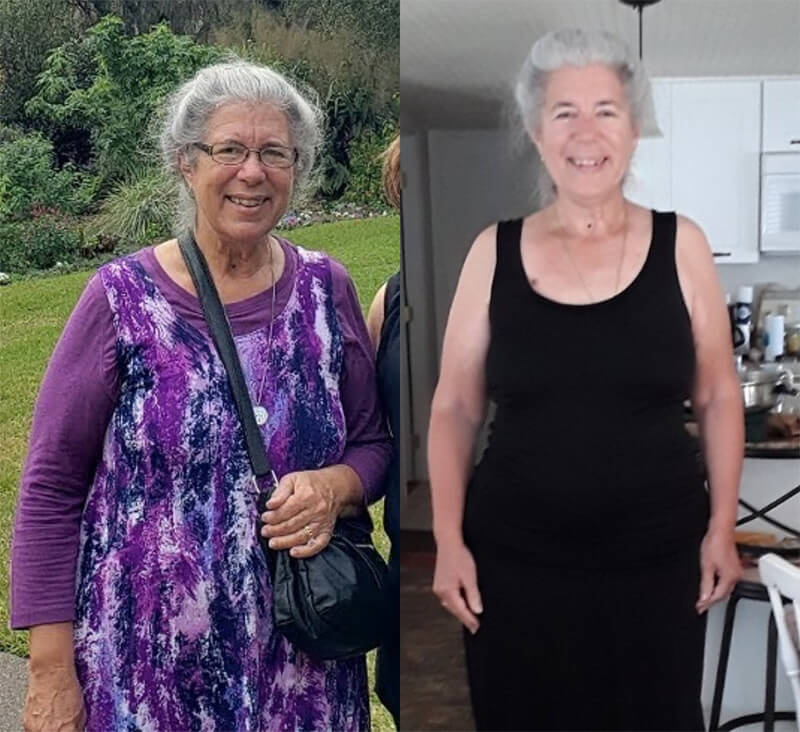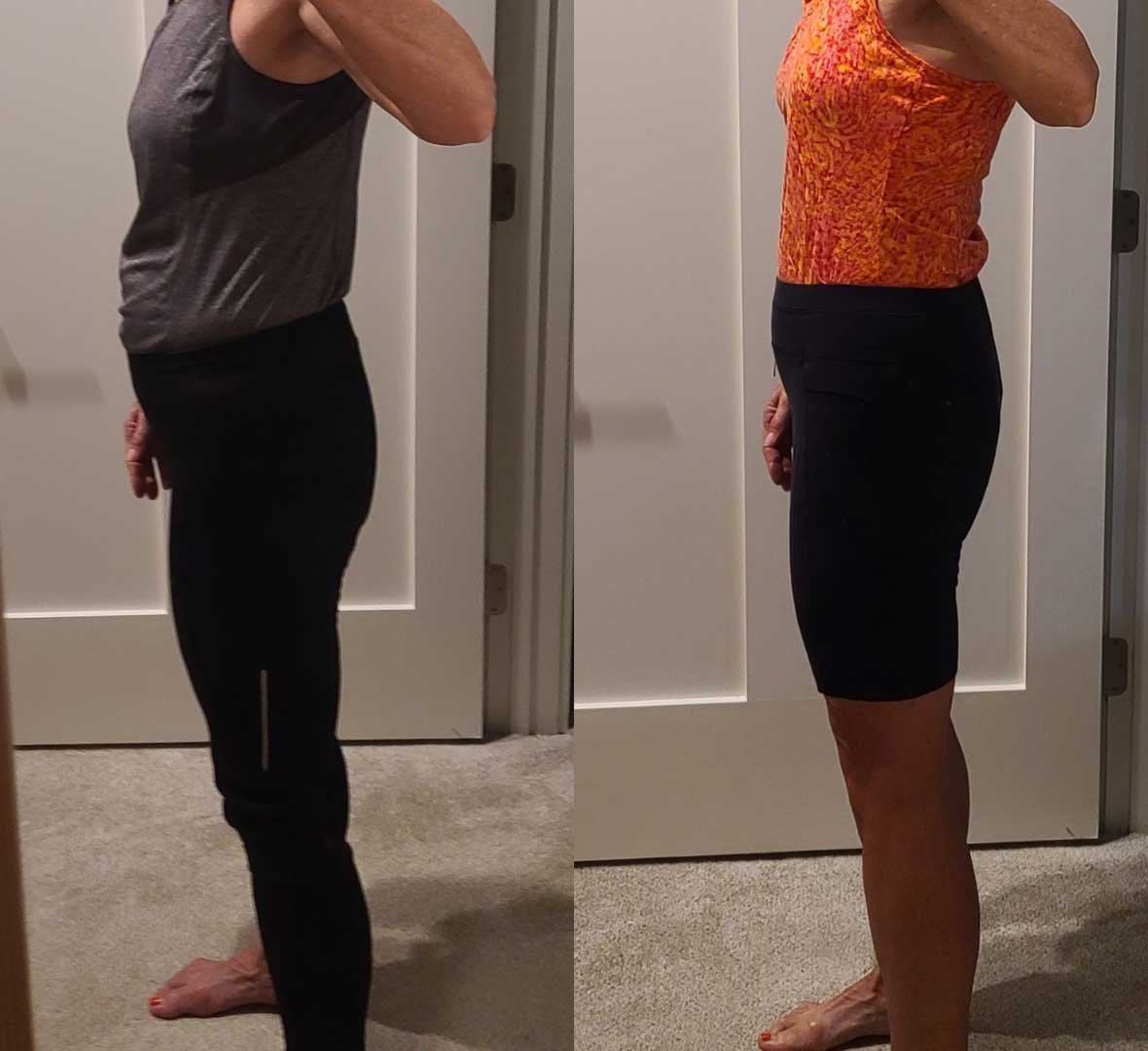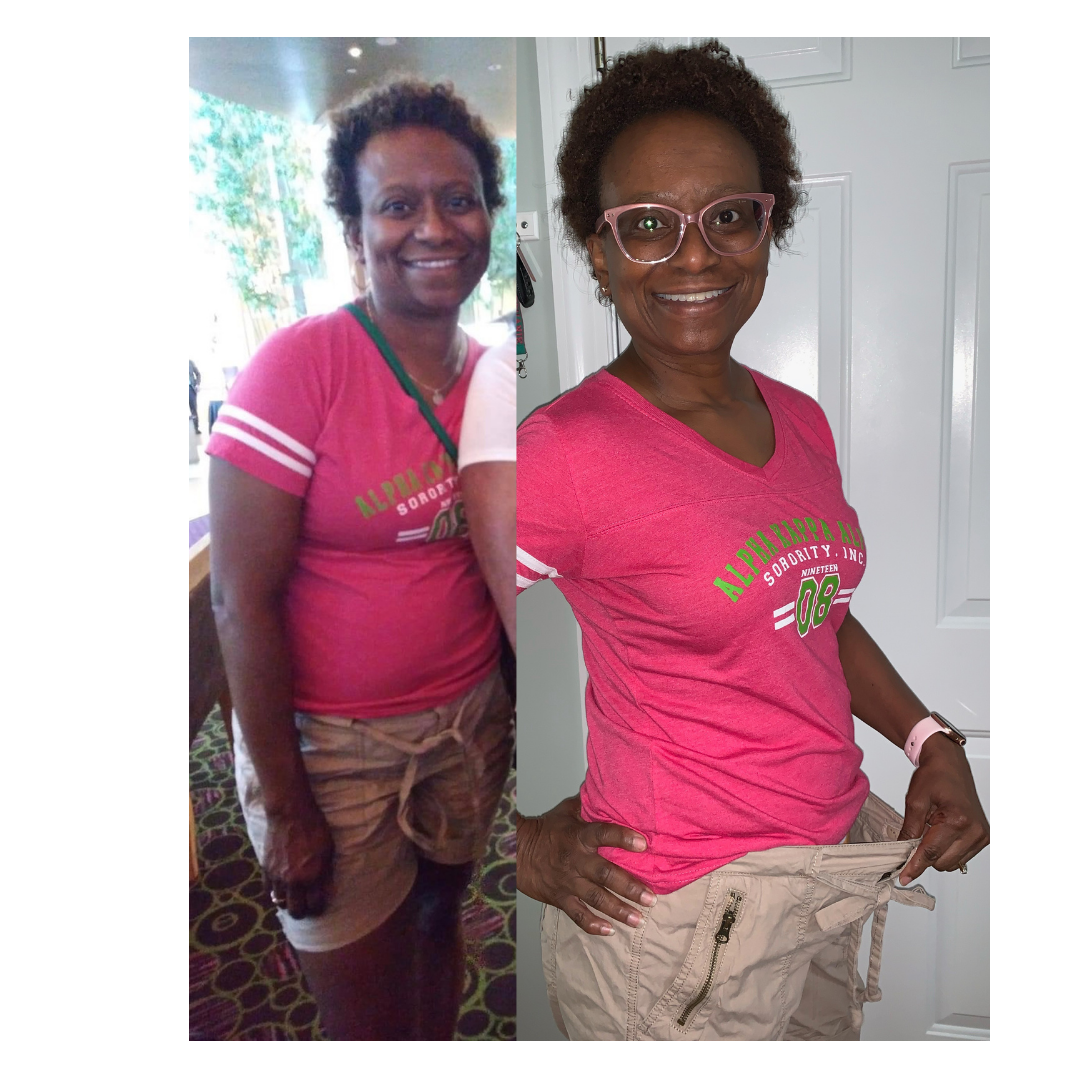Online Weight Loss Coaching for Midlife Women
No calorie counting. No depriving yourself. No more trying to do what worked before, but no longer does.
Masala Body's online weight loss programs provide a strategy & food framework that boosts your metabolism sustainably.

"The key to sustainable weight loss is mindset. This is a lifestyle built on real, metabolism-boosting foods."
- Nagina Abdullah, Online Weight Loss Coach


I Was 40 Pounds Overweight With An Incredibly Demanding Career And Two Small Kids...
So, I get it. You’ve tried every yo-yo diet out there and restricted yourself for years, if not decades. Feeling like you can never wear “skinny” clothes, disliking what you see in the mirror, and covering up at the beach… I’ve been there too. But I went from feeling tired, sluggish, and frustrated to melting off 40 lbs. in 9 months. The best part? I’ve kept this weight off for years. And today, I’ve coached hundreds of busy, professional women to lose 20-60 pounds (without restricting themselves or doing a single sit up).
How? I’ll let you in on a secret: 80% of your weight loss is food. As a professional woman, you don't always have time to lose weight. As your virtual weight loss coach, I will help you every step of the way and help you achieve a permanent lifestyle change so that you live in your empowered, hot body every day.
You hire a coach to excel in your career. weight loss is no different.
After coaching hundreds of busy, professional women (and personally losing 40 pounds in 9 months), I developed an online weight loss program based on nutritional and behavioral science.
Like so many before you, this program will help you lose 20-60 pounds without fad diets, hours at the gym, or restrictions (you will still be able to enjoy the good things in life, like chocolate and wine).
masala body's weight loss results

8-16 LBS
average 8-week weight loss

3 inches
average inches lost in waist in 8 weeks
20 LBS
average weight lost in 3-6 months

4 inches
average inches lost in hips in 8 weeks
30 LBS
average weight lost in 6-9 months
1200+
clients
Anjali, Bank VP & Mother of 2

“My relationship with food has changed immensely."
"Food had always been something I looked at suspiciously. Just going to a restaurant was so hard. To recognize all those [eating] patterns and understand what to do with them...food is supposed to nourish you, my previous thought process of looking at food suspiciously was wrong. My relationship with food has changed immensely."
- Anjali, Bank Vice President and Mother of 2
Read Anjali's full story here.
Our 5-Day LIVE Metabolism Boost for Midlife Women starts on April 29th!

Benefits of Masala Body's Online Weight Loss Programs
FOOD FRAMEWORK
Get a fully customized weight loss food framework that aligns with your diet preferences and lifestyle.
CONVENIENCE
Schedule virtual checkins that fit with your schedule & watch online modules that are available 24/7.
ACCOUNTABILITY
Stay accountable with virtual 1:1 monthly calls with me to keep you focused & on track with your weight loss journey.
RESOURCES
Lifetime access to a library of modules, trainings, fitness videos & recipes that help you lose fat permanently.
COMMUNITY
An invitation to my weekly live Q&A & monthly trainings where I answer questions & you learn from clients who have already lost weight.
FLEXIBILITY
Never deprive yourself. Get a meal plan that works with your likes & dislikes, leaves room for splurging, and can adapt to lifestyle changes.

Download my Sweet Spice Cheat Sheet
Start using spices to boost metabolism and lose weight - download this FREE copy of my Sweet Spice Cheat Sheet to get started today!
OUR WEIGHT LOSS PROCESS
The process for each program varies slightly, but these are the
overall steps for our 8-week, 12-month, and Vegan Weight Loss Programs.
1.
ONBOARDING
You'll begin by taking a survey about your food preferences, schedule, and lifestyle. We will meet 1 on 1 to clarify your goals, your personalized roadmap, and your first steps including your customized Metabolism-Boosting Morning Routine.
2.
FOOD FRAMEWORK BUILT FOR YOU
I customize a meal plan just for you and you learn how to get off sugar. With the customized approach of a weight loss coach, you will discover what parts of your diet can be quickly revamped to promote sustainable weight loss.
3.
COACHING & ACCOUNTABILITY
After you're equipped with your personalized food framework, we continue to meet and clarify your goals. We discuss recipes, triggers, and managing food behaviors, and you'll receive emails and texts that help you stay on track.
4.
EMPOWERED EATING
At this point, you've lost weight and inches and now need to maintain progress. We discuss your progress and note what works best for you. We make sure you know the Masala Body Fat-Burning Food Framework like the back of your hand so that your weight loss will be permanent.
“Nagina helped me uncover my triggers for sugar. I consistently lost 1.5 lbs a week."
"I know my triggers now. I know that if I start with sugar in my tea in the morning, I'm in trouble for the rest of the day.
I didn't expect how easy [the program] would be. I've done Weight Watchers and that's a pain with counting points. [With this program], I could mix and match foods. It was very easy to do what I wanted to do within the confines of the program, and the food was extremely tasty."
- Lindsay, Traveling Executive
Read Lindsay's full story here.
Lindsay, Traveling Executive

WEIGHT LOSS PROGRAMS

8-Week Slim Down
Jumpstart
This program uses 8 weeks to help your body become the powerful, efficient fat-burning machine it can be.

12-Month Slim Down Transformation
This 12-month program is the only online weight loss & lifestyle program that guides you through a year-long journey of sustainable weight loss.

8-Week Vegan & Vegetarian Slim Down
The 8-Week Vegan & Vegetarian Personal Weight Loss Program naturally boosts your metabolism through plant-based foods.
Online weight loss coach for professional women. Look fantastic in anything you wear. Flatten your belly. Slim down.
Online weight loss coaching services
I have worked with hundreds of busy, professional women to lose 20-60 pounds (without depriving themselves or doing a single sit-up). I successfully lost 40+ pounds in 9 months and have kept that weight off for years, while working as a management consultant in the health industry and being a busy mom.
As an online weight loss coach for professional women, I help ambitious physicians, executives, and entrepreneurs of all sizes to slim down and achieve their dream bodies without restrictions or diets.
About Nagina Abdullah
My name is Nagina Abdullah and I’m a weight loss coach and the founder of Masala Body.
As an online weight loss coach, I’ve used my methodology to help female professionals and corporate executives achieve their dream weight and bodies even if they work 60+-hour weeks. I work directly with professional women to help them look amazing in everything they wear.

WEBINAR: The 5-Step Game Plan to Lose 20-40 Pounds

In this webinar, you'll learn:
- The step-by-step game plan our corporate executive clients use to lose two to three dress sizes
- The real reason why cardio and exercise is NOT a good strategy to slim down
- How our clients STOP feeling frustrated, guilty and unsure about what they’re eating

